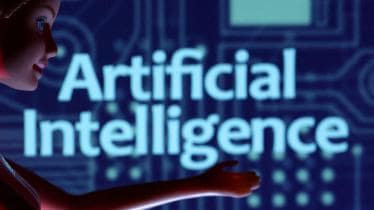Genpact and Microsoft have collaborated to develop over 120 unique artificial intelligence use cases. This partnership aims to leverage AI to streamline and enhance finance functions across various industries.
Both the companies announced their partnership, aimed at driving modern finance transformation across enterprises focusing on leveraging data, technology, and AI to fuel innovation for finance organisations globally, earlier this year.
Vidya Rao, Genpact’s chief technology and transformation officer, highlighted several key AI-driven improvements. One of the critical use cases Rao highlighted was the transformation of vendor management processes, which was traditionally manual and labour-intensive.
“We have used AI here. We have enhanced our vendor management, automating the same with advanced AI algorithms. And the way we do it is we analyse a vast amount of supplier data,” Rao said. This shift has resulted in approximately 85% accuracy in responding to suppliers and has doubled supplier satisfaction.
Additionally, Genpact has transformed its customer connection process through AI-powered analytics and automation, streamlining the entire invoice and payment tracking system. Another innovative application discussed by Rao is the deployment of a large language model-based AI assistant, which has reduced the number of support tickets generated by employees submitting tax documents by 53%, significantly enhancing the employee experience.
Both companies have also aggressively implemented AI across various internal functions. Genpact has applied AI technologies in HR, IT, and finance, including a digital assistant that resolves IT issues directly, bypassing traditional support methods. This has streamlined operations and improved employee satisfaction significantly.
“We started seeing AI play a big role in modernising our own finance function. We started using the Microsoft set of AI tools to drive this kind of a transformation,” Rao said.
Microsoft, too, has incorporated AI extensively within its operations, including the use of GitHub Copilot by its engineers to enhance coding efficiency and quality. Additionally, Microsoft employees frequently interact with AI co-pilots for CRM activities, enhancing data management and decision-making processes.
Sangita Singh, general manager – ITES at Microsoft India said, “First of all, not only have we deployed all of the co-pilots, but we use it like I am running a business. I have to interact with the CRM almost every day, three, four times. I have a co-pilot through which I interact, which is a natural language interface”. This advancement has allowed her to interact with essential data in a conversational manner, enhancing efficiency.
Monetising AI Innovations
The financial impact of these AI initiatives is clear, with both companies experiencing significant returns on investment. Genpact, for instance, has reported that its AI-driven projects have contributed positively to revenue, showcasing the potent financial benefits of integrating AI into business operations.
Singh also touched on the broader implications of AI beyond financial metrics, discussing the potential for AI to make substantial impacts across various sectors such as healthcare, agriculture, education, and citizen services. She referenced a study by IDC, which suggests that for every dollar invested in AI, leaders in India are seeing an average return of about $3.8.
“With AI we have an opportunity to drive more impact for industries… That’s the opportunity that we have here on creating an impact,” Singh said.
Transforming Workforce and Job Roles
The adoption of AI is transforming job roles and creating new employment opportunities, particularly in emerging fields such as prompt engineering and model fine-tuning. “We need people who understand our type of business…those are the people that we will reskill,” Rao explained, emphasising the shift towards a more AI-savvy workforce.
Meanwhile, Sangeeta Singh said AI is not about reducing the workforce but about enhancing the capabilities of the existing talent pool. “It is really about rethinking the whole talent strategy which is upskilling your existing talent pools or hiring fresh talent from pools that were not traditionally targeted.”
She also touched on the evolution of job roles within the IT industry, mentioning new opportunities in areas such as prompt engineering and model fine-tuning, which require distinct skill sets that were not previously in demand.
Genpact is proactive in reskilling its workforce to adapt to new technologies. “We have close to 100,000 people whom we have already trained on AI,” Rao mentioned, highlighting the company’s commitment to ensuring its employees are equipped for the future,” Rao said.
